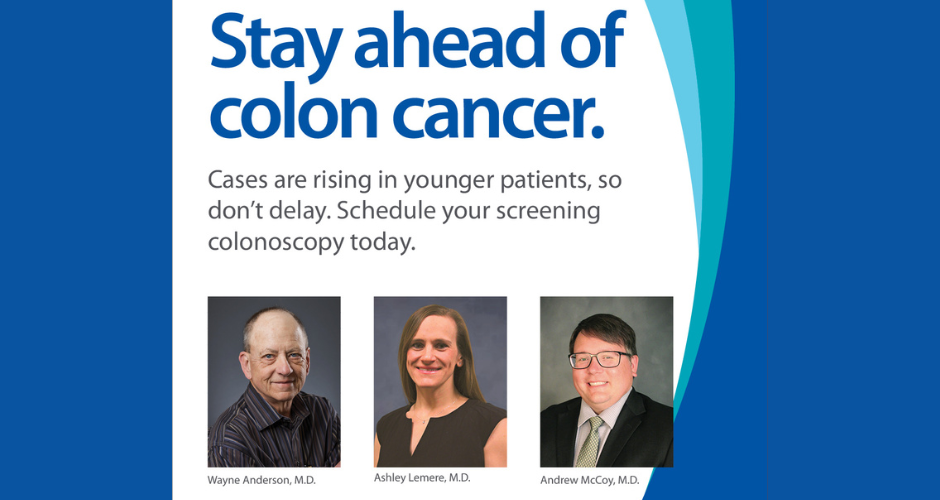Level Up Your Life: A Guide to Men's General Health
MAY 21, 2025It's time to break down those barriers and the stigmas regarding men's health and well-being. So, let's dive into some key areas of men's general health.
Read More
The second leading cancer killer in the U.S.? That’s colorectal cancer, or cancer of the colon or rectum. It affects both men and women of all racial and ethnic groups - and is most often found in people age 50 or older.
Just because it most often affects older people doesn’t mean you should ignore this cancer in your younger years. Read on for five savvy tips that can keep you steps ahead of colorectal cancer.
More adults younger than age 45 are being diagnosed with colorectal cancer than ever before. In fact, the rate has doubled since the1990s for those younger than 50. The reasons for this steady rise in colorectal cancer incidence and deaths in adults younger than 50 are not fully understood.
Due to those rising rates, the recommended colorectal cancer screening age was lowered from 50 to 45 by the U.S. Preventive Services Task Force. The age you should have your first colonoscopy also depends on your risk factors, so talk to your provider about when to start.
The standard recommendation is to have a colonoscopy every 10 years – unless there are abnormal findings. But this isn’t the only screening method. Talk to your provider about which screening tests are right for you.
A CT scan is used to produce images of your abdominal organs.
A thin, flexible tube is inserted into the rectum to look at the lower part of your colon only.
A stool sample is checked for biomarkers that are associated with colorectal cancer and advanced adenomas. Also called an mt-sDNA test.
More than one stool sample is used to check for blood. Also called an HS-gFOBT.
A stool sample is checked for hidden blood. Also called a FIT test.
An abnormal result for any of these tests should be followed up with a timely colonoscopy. For those 65 and older, Medicare provides coverage for certain colorectal cancer screenings, subject to certain coverage, frequency and payment limitations.
The healthy habits you adopt now can help you stay ahead of the following risk factors for colorectal cancer:
Especially at first, colorectal cancers and polyps may not cause symptoms. That’s why it’s so important to talk to your provider about any of the following changes that can be caused by colorectal cancer:
The good news is colorectal cancers can often be prevented - or diagnosed when treatment is most effective. To stay a step ahead, talk to your provider about your risk factors, screening recommendations and the healthy habits you can adopt now.

It's time to break down those barriers and the stigmas regarding men's health and well-being. So, let's dive into some key areas of men's general health.
Read More
Being diagnosed with HIV can be difficult, but it's important to remember that with proper care and treatment, people living with HIV can lead long, healthy lives.
Read More
Measles, It’s a disease many of us thought was relegated to history books, thanks to the effectiveness of the MMR vaccine. However, recent outbreaks in some states are a stark reminder that measles is still a threat.
Read More